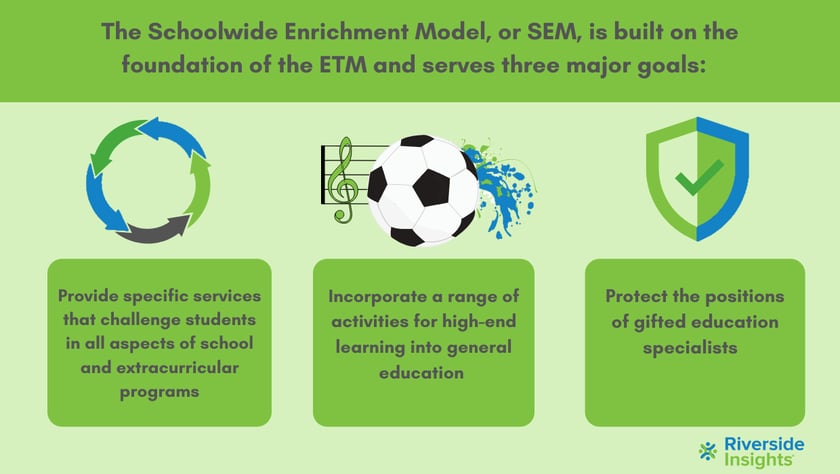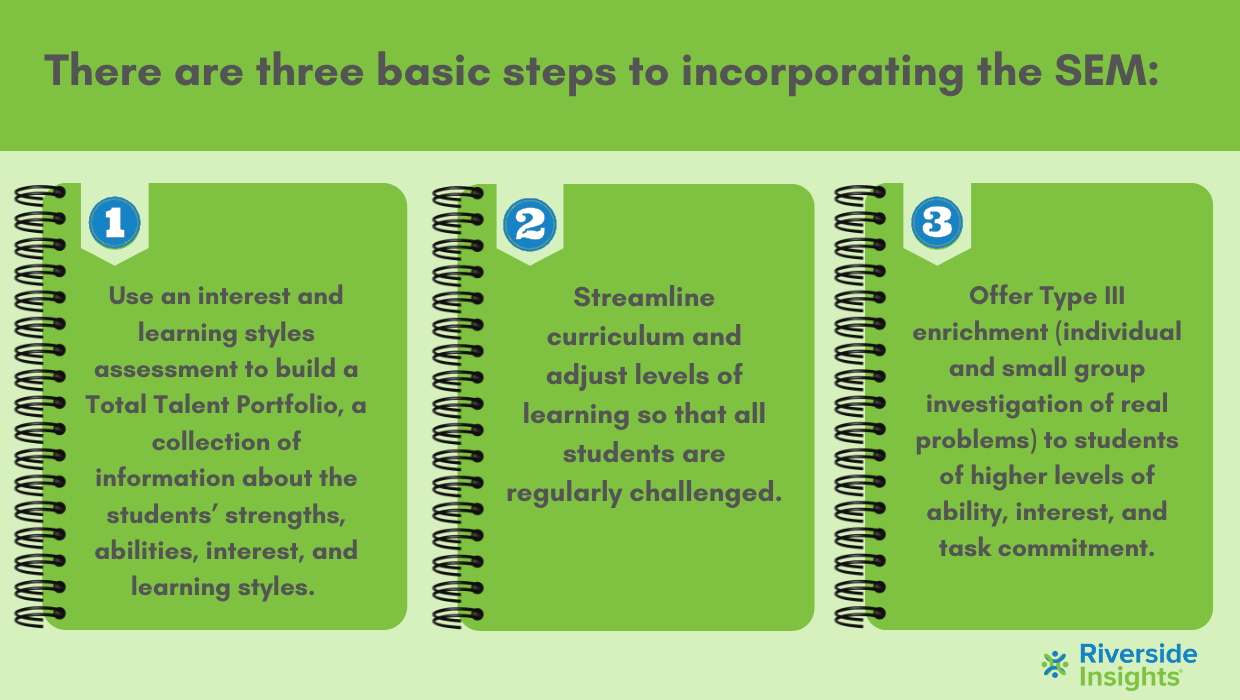Engage Your Learners with a Schoolwide Enrichment Model
%20EDIT.png)
Engage Your Learners with a Schoolwide Enrichment Model
A summary of “The Schoolwide Enrichment Model: A Focus on Student Strengths & Interests,” by Sally M. Reis and Joseph S. Renzulli
Over the years, schools have used different models to determine and foster giftedness in students. The Schoolwide Enrichment Model (SEM) incorporates the most successful enrichment methodologies of the last 50 years into a robust system that helps students reach their full potential by engaging them in creative thinking and fostering creative productivity.
Development of the SEM
In order to understand what the SEM is and how it works, we must understand the concepts that contributed to its development. Renzulli’s three-ring model of giftedness was an early model that considers giftedness as the intersection of three gifted behaviors: above average ability, creativity, and task commitment.

Three-Ring Model of Giftedness
The three-ring model of giftedness served as the bedrock for the Enrichment Triad Model (ETM). In the ETM, students who place in the top 1-3% in test scores move through three types of enrichment clusters, as illustrated in the image below:

Enrichment Triad Model
Yet the ETM, while a robust system that allows students to hone and take control of their learning, left out many students who showed potential for giftedness in areas other than test scores. This realization led to the Revolving Door Identification Model (RDIM), which expanded identification of students for Type III creative productive enrichment experiences using a wide variety of criteria including observations, examples of creative potential, and referrals.
All three of these models challenged the traditional belief that giftedness is static and emphasized the need to provide opportunities for children to develop gifted and creative behaviors.
What is the SEM?

It's based on research-based principles that focus on prioritizing independence and engaged learning instead of dependent and passive learning through the following principles:
- Each learner is unique, so learning experiences must reflect individual needs
- Students learn more when they enjoy the learning experiences
- Learning is more impactful when learners can view content through the lens of a real-world example
- Students must be given the opportunity to construct their own meaning in order to enhance knowledge and gain critical thinking skills
How is the SEM Incorporated?
In the SEM, a talent pool of 10-15% of above average/high potential students is identified through a variety of measures, including test scores, teacher or parent nominations, assessment of creativity potential and task commitment, and self-nomination.

The SEM is incorporated into the school structure through scheduled blocks of enrichment clusters, populated with non-graded students who have similar interests. The key is that students and teachers want to be there, and the topics are self-selected.
Because these enrichment clusters involve students who self-select topics, the SEM is “school-wide” because it creates interest in the entire student body and faculty. The SEM is inherently inclusive, based on the principle that “every child is special if we create conditions in which that child can be a specialist within a specialty group” (Renzulli, 1994).
Your Expertise + Our Insights = Limitless Learning
Let’s Elevate Potential Together



-1.png)